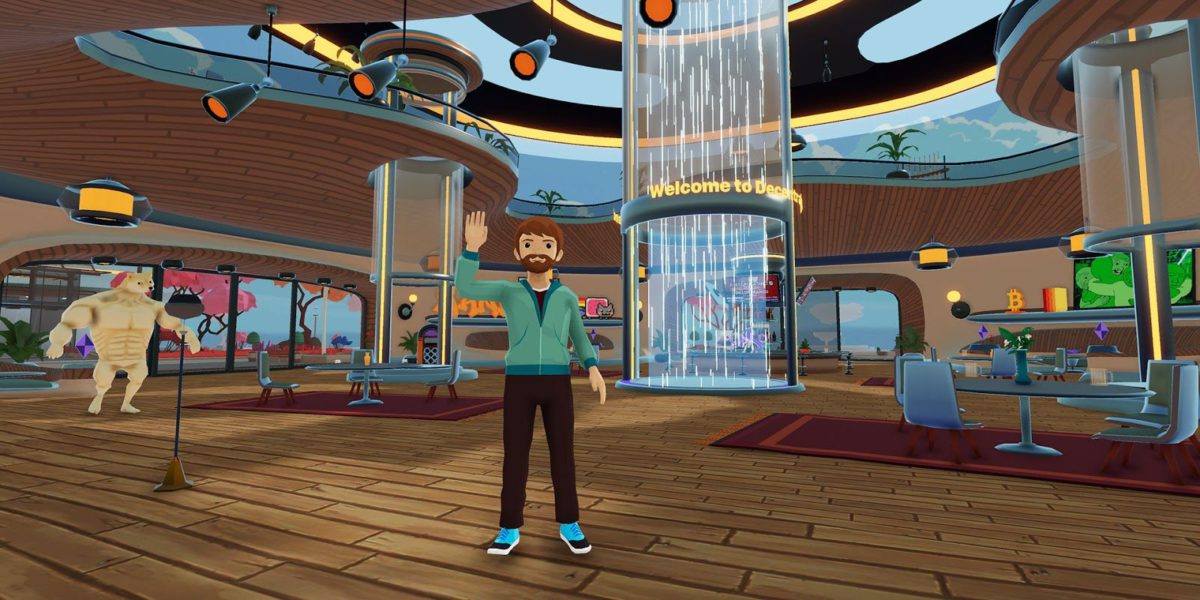Top 4 Metaverse Case Studies On The Tourism Industry
The metaverse’s conceptual roots demonstrate that it represents a formidable technological intervention. Since the 1990s, the notion of the metaverse has existed globally, although it has only lately acquired significant notice. What prompted the transition of the metaverse from the domain of science fiction literature and films to actual projects? The notion of the metaverse, which represents corresponding virtual locations, outlines new possibilities for social interaction and digital experience. Consequently, applying a metaverse in various use cases, such as tourism, may provide several potentially helpful advantages.
The following discussion will introduce metaverse tourism and a comprehensive analysis of the metaverse’s impact on the tourist industry. It is feasible that the metaverse visitor summary will reveal that the metaverse is capable of offering more than just entertainment and video games. In addition to the most efficient techniques for using metaverse capabilities in the tourism business, you may also find examples of metaverse tourism’s practical uses.
#Btroverse showed a new part of his Metaverse city map;🗺
In this part of the map, places for tourism should be designed🗿
This looks very attractive!💥
what is your opinion?#velse #vlx #Metaverse #Web3 #NFT #velasblockchain https://t.co/kYa0LKA1cS— VELAS NEWS (@velasnews) August 18, 2022
Tourism and the Metaverse: Their Relationship
To provide direction on the effect of the metaverse on travel, it will be necessary to examine in detail how the metaverse and tourism may share common ground. To comprehensively understand metaverse tourism, you must have in-depth knowledge of the metaverse and the tourism industry.
The 1992 science fiction novel “Snow Crash” is attributed as the origin of the term “metaverse.” currently, the most widely accepted definition of the metaverse characterizes it as a digital platform that offers consumers rich digital experiences while functioning in decentralized situations. While wearing a virtual reality headset, you may explore the metaverse’s vibrant, three-dimensional virtual worlds.
The most accurate description of the metaverse would be a collection of diverse but linked virtual worlds. Users may create their avatars, games, and objects within the metaverse and experiment with several ways to connect to the many accessible virtual destinations. Additionally, users may interact with virtual objects and other users via motion-sensing controllers and microphones.
Before proceeding with the subject of metaverse tourism examples, it is necessary to have a comprehensive understanding of what defines the tourism industry. Transportation, entertainment, food and beverage services, and hotels are vital components of tourism. A large variety of other activities exist within the tourism industry.
What kind of synergy exists between tourism and the metaverse? Tourism and the metaverse are inextricably interwoven, as seen by the ability to create digital representations of real-world objects and environments. This capability illustrates the tight connection between the two. Headsets that deliver a virtual reality experience, sometimes known as VR, allow users to go to distant locations without leaving their homes. Nevertheless, it is crucial to separate metaverse tourism from VR tourism, since the metaverse is capable of considerably more than virtual reality experiences. Virtual Reality is only one of the metaverse technologies that can influence the products and services supplied by Metaverse Tourism.
The Metaverse’s Impact on the Tourism and Hospitality Industries
Tourism and hospitality businesses do not need to fear the potential of metaverse tourism. If the metaverse were used, the tourism and travel industry would have access to a new tool for facilitating consumer relationships. You may be assured that bookings for real journeys will not be affected by your metaverse travel experiences at this time.
The advantages of metaverse tourism may enable people worldwide to engage in activities without leaving their homes. Using the metaverse, it is possible to attend various events, such as. Consequently, the purpose of metaverse tourism would be to improve clients’ holiday experiences by capitalizing on the benefits of virtual tourism.
Live concerts
Museum tours
Conventions Casinos
Getting down in the nightclubs
The metaverse has also created new opportunities for comparing various services, such as those offered by hotels and restaurants. You might, for instance, use the metaverse to perform virtual tours of two hotels to determine which would be the preferable choice for your next vacation. Through the diversity of metaverse tourism, users also have the option to engage with a variety of hospitality businesses.
The Influence of Virtual Tourism on Hotels
A tourist’s survey of the metaverse indicates that it is still in its infancy and will take a considerable time before it has a discernible effect. How can those in the hospitality business prepare for the advent of the metaverse? It is fascinating to notice that hotels may use the power of the metaverse to develop realistic marketing and sales strategies. In addition, the metaverse can aid in the enhancement of daily operating procedures and hotel revenue management techniques. In addition to interacting with a new target market comprised of virtual tourists, hotels may explore innovative ways to increase the number of guests they can accommodate.
Promotional Opportunities for the Tourism Industry in the Metaverse
The benefits of metaverse tourism may also give potentially lucrative marketing opportunities for tourist and hospitality businesses. A more immersive presentation of a company’s products and services is a one-way immersive experience that may be used in marketing strategies.
Tourism and hospitality professionals may study various extra digital marketing opportunities inside the metaverse. Purchasing ad placements in the metaverse and doing product placements are only two of numerous examples. Customers might also use the metaverse to compare other businesses, their services, and their unique attractions. In addition, the metaverse is an ideal platform for organizing and hosting virtual events and offering brand NFTs as part of marketing initiatives.
Tourists and event organizers might utilize the metaverse to plan vacations and events through virtual hotels and event venue tours. The metaverse may provide interactive floor plans and virtual tours of hotel rooms, conference rooms, and wedding locations. In addition, the metaverse may help create wedding settings.
Increasing the Metaverse’s Ability to Generate Tourism-Related Income
In addition to the marketing potential, the instances mentioned earlier of the effect of the metaverse on the tourism industry indicate the possibility of a rise in revenue. The metaverse allows hotels to increase weekday reservations and bookings for stays of three nights or longer. In addition to supporting hotels in achieving diverse revenue management goals, the metaverse may also aid hotels in targeting business-leisure travellers more effectively.
In addition, hotel employees may utilize the metaverse to increase revenue by engaging with clients in the virtual world. For instance, revenue managers could propose to potential customers that they examine the establishment’s additional product offerings, supplemental packages, and enhanced lodgings. Event organizers may utilize the metaverse to increase sales of premium tickets by offering a virtual tour of VIP event areas. In a similar spirit, the metaverse has the potential to be an effective place for selling tickets to virtual events, such as professional networking conferences and meetups.
Metaverse Case Studies in the Tourism Industry
The most successful technique for estimating the future advantages of metaverse tourism would be to focus on the examples that are now in operation. You will better understand what the future of metaverse tourism holds if you examine a range of historical examples of metaverse tourists.
- NFTs Associated with Travel and Tourism
Non-fungible tokens, often known as NFTs, are a crucial element of the metaverse; brand NFTs have the potential to improve customer engagement. Numerous well-known corporations, such as McDonald’s, have used the possibility of NFTs to enhance the efficacy of their marketing activities. Marriott Bonvoy introduced three new forms of payment (NFTs) during Art Basel Miami Beach 2021, making it one of the most outstanding examples of travel-related NFTs. The three NFTs were launched as part of the “Power of Travel” campaign and acted as advertisements for Marriott’s introduction into the metaverse. The digital art NFTs were put up for auction, and anybody interested in bidding may purchase them with bitcoin.
The customized NFT marketing plan demonstrates Marriott’s competitive advantage in metaverse marketing. The metaverse tourist overview connected to the example of tourism NFTs supplied by Marriott suggests the effectiveness of loyalty programs. As part of their attempts to increase interest in and awareness of their loyalty program, Marriott has established a countdown clock for the NFT.
- Transforming the Tourism Industry’s Everyday Operations
The metaverse can provide new channels of communication between tourism industry professionals and the people they serve. In addition, the metaverse may provide tools that promote enhanced internal communications. Tourism and hospitality professionals may benefit from using the metaverse to facilitate virtual interactions with co-workers, corporate management, remote employees, and off-site teams. Room Hotels is one of the most stunning examples of metaverse tourism in this context. The tech-based hospitality startup plans to introduce a “rooms-only” hotel model that combines digital tourism and metaverse tourism themes.
Users could find keyless hotel rooms in mixed-use buildings, encouraging environmentally responsible business activity. Intriguingly, Roomza Hotels lack standard public meeting spots and lobby areas that visitors are allowed to explore. Using the metaverse, however, guests would not need to leave their rooms to engage with the hotel’s communal spaces.
Based on this example, it seems that technological advances will only complement the essential aspect of tourism and hospitality, namely the visitors. Through the automation of client booking and purchase operations, metaverse can help a large variety of tourism and hospitality businesses overcome inefficiencies. For instance, companies in the tourism business may study if a presence in the metaverse may cut their total operating expenses. With the tourist metaverse, you have the advantage of automation working in your favour, which is maybe the most significant advantage.
- Virtual and augmented reality use
A focus on augmented Reality’s role in the tourism sector would be an extra key focus point for a comprehensive metaverse tourism analysis. Augmented Reality has the potential to bring several helpful advancements within the context of metaverse tourism. For example, increased reality programs on your smartphone may aid you in deciding facts about real-world locations and their near environs.
The introduction of augmented Reality into metaverse tourism would encourage the creation of tourist attractions based on AR technology and the implementation of interactive elements into hotels. The most critical component of augmented Reality (AR) application in metaverse tourism may be its reliance on beacon technology to offer relevant real-time push warnings.
- The most effective implementation strategies for metaverse in the tourism industry
The disclosures on the effect of the metaverse on the travel and hotel industries provide a clear picture of the expected potential of metaverse tourism. However, it is also vital to thoroughly grasp how to capitalize on the metaverse’s prospects for the tourism business. Following is a description of the best practices for integrating a metaverse into the travel and hospitality industry.
- Provide a comprehensive overview of the metaverse project’s objectives to persuade others that metaverse tourism is essential.
- Create a business strategy for marketing the metaverse and estimate the costs associated with implementing metaverse technology.
- While installing metaverse solutions, you should make an effort to monitor what your rivals are doing and search for methods to gain a competitive advantage.
- Look for opportunities in areas like group marketing and transitory travel to provide targeted and personalized experiences in the metaverse.
- To ease the establishment of a virtual itinerary, build a metaverse-based timetable for engaging with visitors and providing them with important information.
- Encourage visitors to the metaverse to take the form of virtual valuables, such as brand NFTs, and preserve them as souvenirs.
When you mix play-to-earn games with loyalty programs, you offer visitors the chance to win rewards by engaging in a range of metaverse-based activities.
Bottom Line
As a consequence of the metaverse, the tourist and hospitality sector has been provided with an abundance of intriguing new opportunities. Consumers may experience a unique and more immersive sort of virtual tourism, allowing them to capitalize on the benefits of metaverse tourism. In addition, hotels and other hospitality firms, such as event planners, may use the metaverse to improve operational efficiency.
In addition, the metaverse provides businesses in the tourism and hospitality sectors with an ideal platform for launching and expanding their marketing initiatives. In the future, the examples of tourism and travel NFTs have the potential to serve as the foundation for a diverse array of new marketing strategies in the area of metaverse tourism. Start educating yourself on the metaverse and how it may serve practical purposes in the tourism sector.
Stay informed with daily updates from Blockchain Magazine on Google News. Click here to follow us and mark as favorite: [Blockchain Magazine on Google News].
Get Blockchain Insights In Inbox
Stay ahead of the curve with expert analysis and market updates.
latest from tech
Disclaimer: Any post shared by a third-party agency are sponsored and Blockchain Magazine has no views on any such posts. The views and opinions expressed in this post are those of the clients and do not necessarily reflect the official policy or position of Blockchain Magazine. The information provided in this post is for informational purposes only and should not be considered as financial, investment, or professional advice. Blockchain Magazine does not endorse or promote any specific products, services, or companies mentioned in this posts. Readers are encouraged to conduct their own research and consult with a qualified professional before making any financial decisions. The featured image used is just a creative depiction of the title and it does not intend to hurt sentiments of any person or institution. If it hurts anyone sentiments, please do not hesitate to reach out to Blockchain Magazine.

 Bitcoin
Bitcoin  Ethereum
Ethereum  XRP
XRP  Tether
Tether  Solana
Solana  USDC
USDC  Dogecoin
Dogecoin  Cardano
Cardano  Lido Staked Ether
Lido Staked Ether  TRON
TRON  Chainlink
Chainlink  Wrapped Bitcoin
Wrapped Bitcoin  Sui
Sui  Wrapped stETH
Wrapped stETH  Avalanche
Avalanche  Stellar
Stellar  Hedera
Hedera  Toncoin
Toncoin  Shiba Inu
Shiba Inu  LEO Token
LEO Token  Hyperliquid
Hyperliquid  Bitget Token
Bitget Token  WETH
WETH  Litecoin
Litecoin  USDS
USDS  Polkadot
Polkadot  Bitcoin Cash
Bitcoin Cash  Ethena USDe
Ethena USDe  MANTRA
MANTRA  Wrapped eETH
Wrapped eETH  Uniswap
Uniswap  Ondo
Ondo  Pepe
Pepe  Monero
Monero  Aave
Aave  WhiteBIT Coin
WhiteBIT Coin  NEAR Protocol
NEAR Protocol  Mantle
Mantle  Official Trump
Official Trump  Aptos
Aptos  Dai
Dai  Internet Computer
Internet Computer  Ethereum Classic
Ethereum Classic  Bittensor
Bittensor  Cronos
Cronos  OKB
OKB  POL (ex-MATIC)
POL (ex-MATIC)  Gate
Gate 




